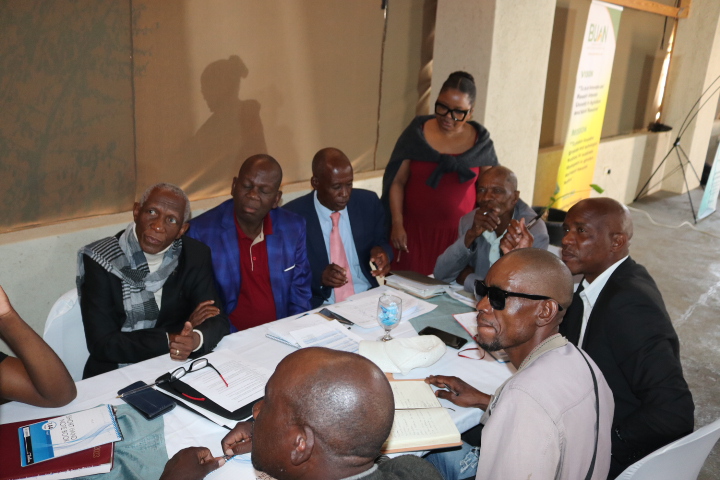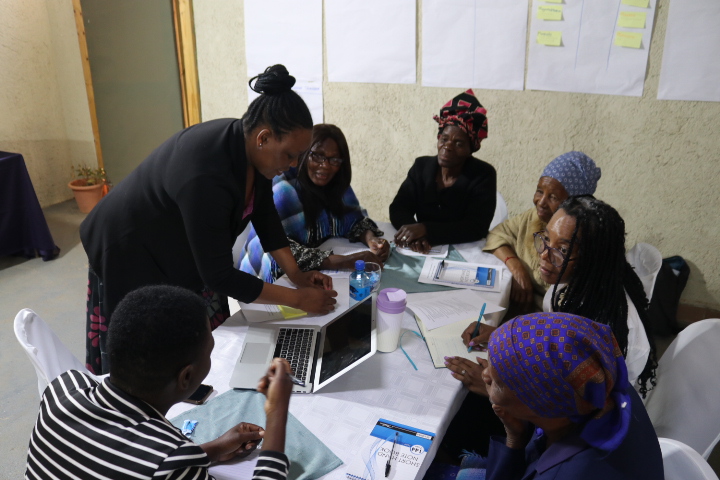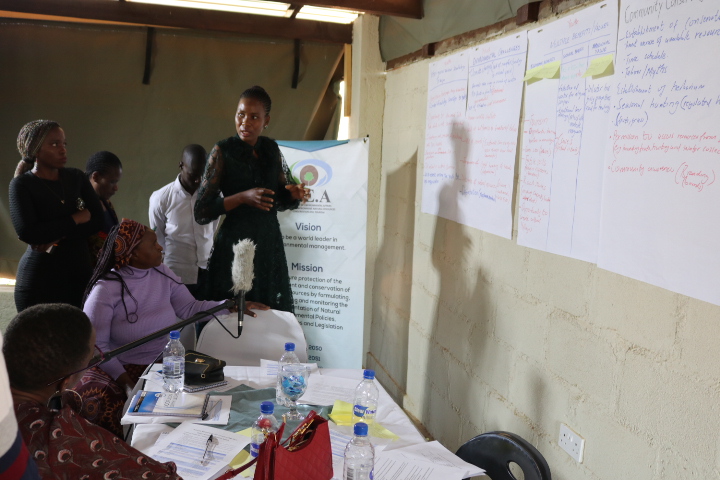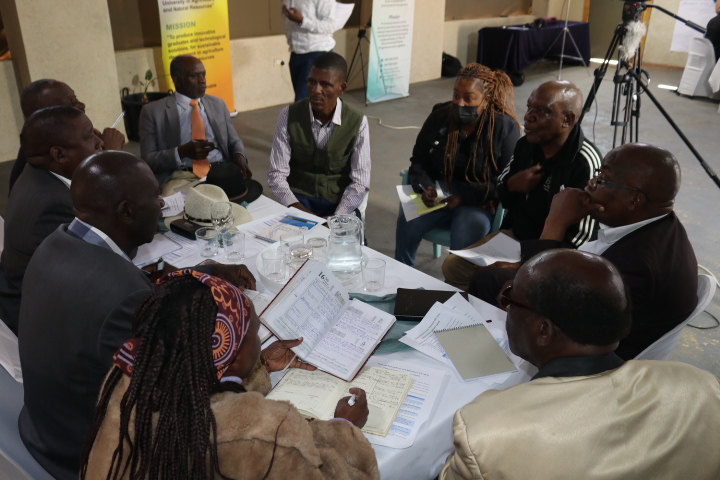Botswana Launches the National Ecosystem Assessment to Build its Knowledge-Base on Biodiversity and Ecosystem Services
- News
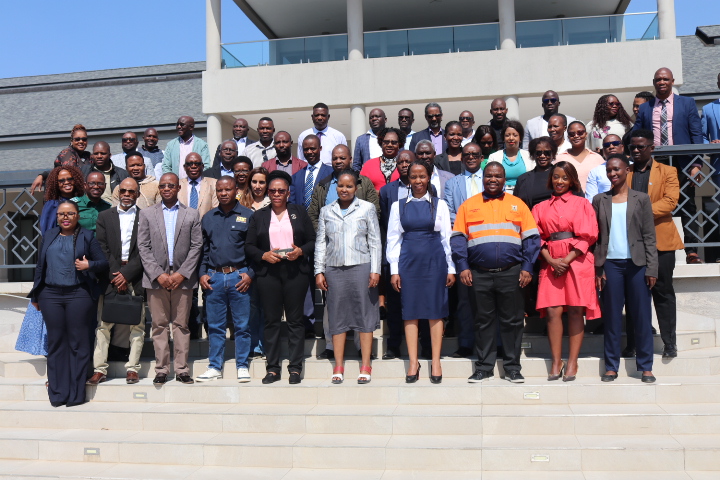
With support from the National Ecosystem Assessment (NEA) Initiative at UNEP-WCMC, Botswana launched its national ecosystem assessment project on 23rd August 2023. Implemented by the Botswana University of Agriculture and Natural Resources (BUAN) in partnership with the Department of Environmental Affairs (DEA), Ministry of Environment and Tourism, the project will synthesise knowledge on biodiversity and ecosystem services and their interlinkages to people.
Ms. Malebogo Somolekae, Acting Director, DEA, Ministry of Environment and Tourism, highlights how the assessment will benefit the people of Botswana:
“The Botswana National Ecosystem Assessment project is very important to Botswana as it will provide data and information on ecosystem services that are sustaining livelihoods throughout the country. As the project assists communities to identify ecosystem services within their area, it acts as an eye-opener for both the community and local authorities to be aware of those resources within their area that could be harnessed and developed as enterprises and generate income for local communities. This will assist the government to achieve the overall goal of poverty eradication.”
The launch, inception and validation workshops were held from 17th – 25th August 2023 in Gaborone, Botswana and the participants included assessment technical teams from BUAN and DEA, representatives from government agencies, private enterprises, academia, and non-governmental organisations, as well as researchers on traditional and local knowledge. Global partners also participated in the launch and inception workshop, which included experts from the NEA Initiative, UNESCO and Malawi National Ecosystem Assessment team.
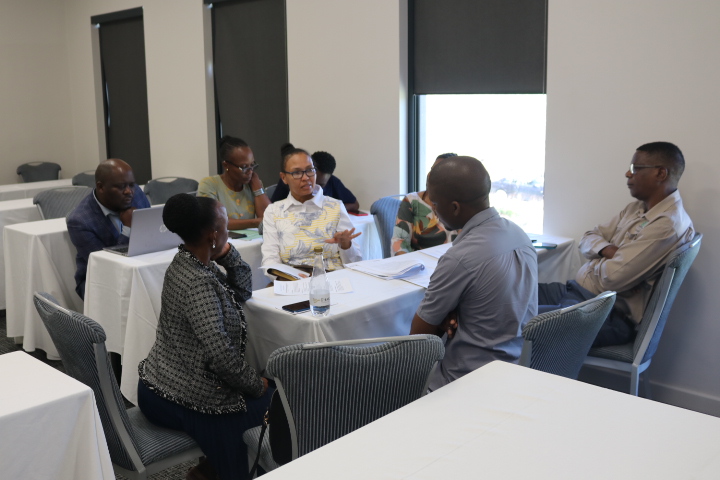
During the inception workshop, participants were introduced to basic concepts of an ecosystem assessment, its value and the rationale for undertaking an assessment. They were also provided with information on how national ecosystem assessments can contribute to assessing the state of ecosystems and ecosystem services for better decision-making in informing policy instruments, such as the National Biodiversity Strategy and Action Plan (NBSAP) and Botswana Vision 2036. The workshop explored potential contributions of the national assessment to regional and global assessments undertaken by the Intergovernmental Science-Policy Platform on Biodiversity and Ecosystem Services (IPBES). Discussions were also held on the management and implementation of the national ecosystem assessment.
Traditional and Local Knowledge Holders Community Dialogues
Recognising the role of Indigenous Peoples and local communities’ stewardship of biodiversity, the launch was preceded by community dialogues on traditional and local knowledge, held in Palapye from 21st-22nd August. With support from the Biodiversity and Ecosystem Services Network (BES-Net) and Indigenous and local knowledge unit led by UNESCO’s Local and Indigenous Knowledge Systems (LINKS) Programme, communities were engaged through dialogues to assess how traditional and local knowledge enable conservation and sustainable use of natural resources. The Botswana National Ecosystem Assessment team aim to leverage multiple knowledge systems to ensure the assessment is informed by all available data, information and knowledge in line with Target 21 of the Kunming-Montreal Global Biodiversity Framework (GBF), as well as NBSAP that is under revision. Guided by their traditional and local knowledge, community knowledge holders and rightsholders, working closely with the assessment team, mapped priority themes and issues of focus that will inform policy questions.
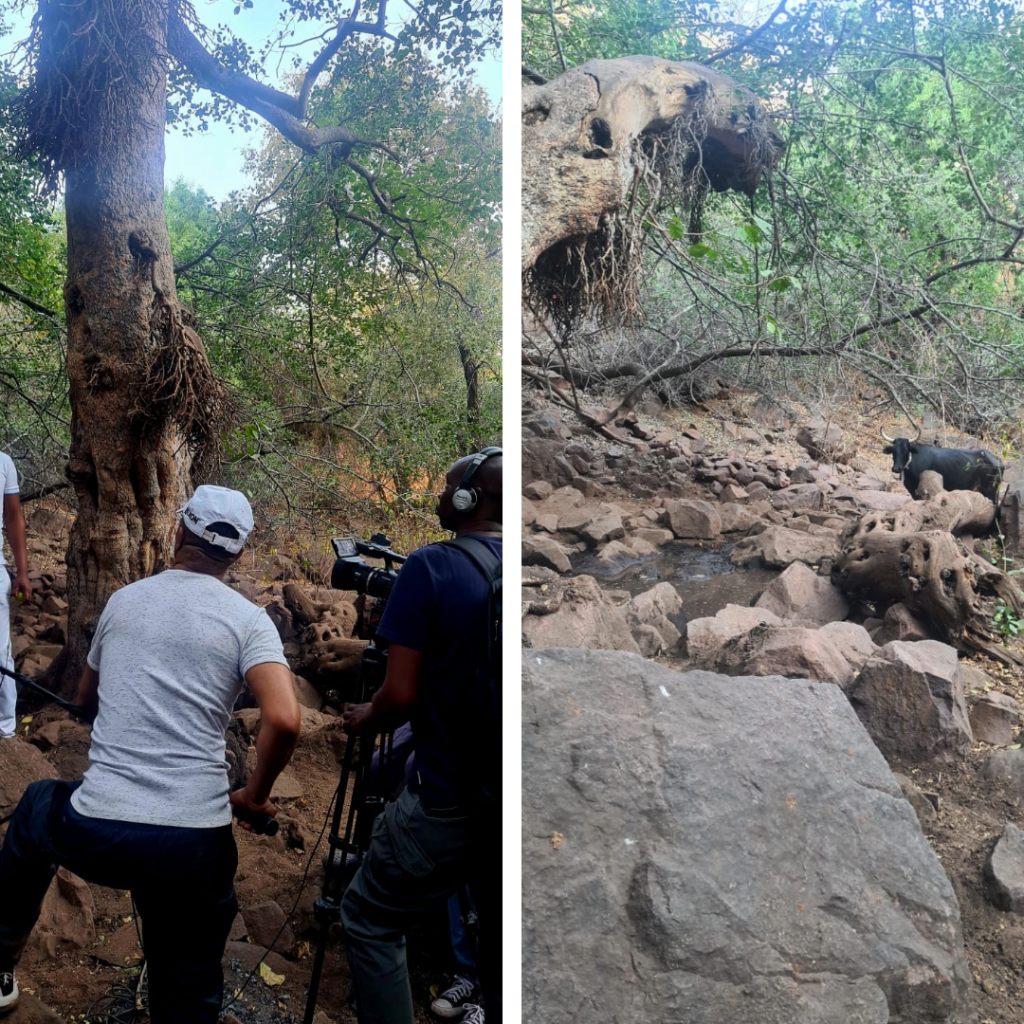
We asked Dr Nelson Tselaesele, Botswana National Ecosystem Assessment Traditional and Local Knowledge Lead, about some of the key outcomes achieved through the community dialogues:
“There are two main outcomes of the community dialogue. First, it resulted in the creation of awareness about the National Ecosystem Assessment project in Botswana and the importance of incorporating traditional and local knowledge in the assessment process.
“The dialogues brought together diverse community members in terms of gender, age and community leadership position. This was to facilitate knowledge exchange with regard to the complementary role each category plays in the utilization, conservation and governance of natural resources in their area. Consequently, the dialogues revealed the following key issues regarding the utilisation and conservation of biodiversity and ecosystem services in the Tswapong region: gender division of labour/ gender roles; strategies/practices in place for the inter-generational transfer or transmission of traditional and local knowledge; customary management and local governance strategies; and how national policies and strategies hinder or support traditional and local knowledge practices.”
You can learn more about the community dialogues here.
Next Steps
Moving forward to designing and identifying the framework and direction of the assessment, the workshop facilitated the inclusion of inputs from stakeholders and knowledge holders in the scoping report. Their inputs will contribute to identifying the need for the assessment and the key policy questions. Once the scoping report has been completed and approved, the expert evaluation stage will begin by nominating authors to write specific chapters of the national ecosystem assessment technical report. They will bring together and analyse data, knowledge and information on biodiversity and ecosystem services. The outcome of this is critical synthesis of knowledge addressing the key policy questions identified in the scoping stage.
Restoring Botswana’s ecosystem for people and nature
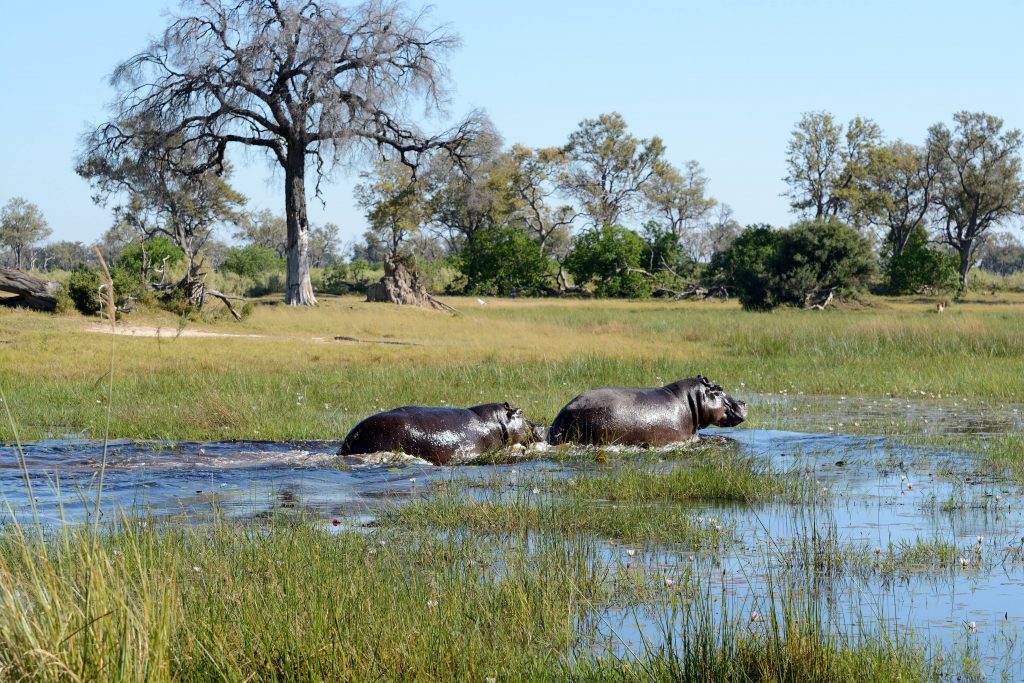
Botswana is a country of biodiversity contrasts. This ranges from the wetlands of the north to the broad and arid Kalahari Desert in the center and southwest. The Okavango Delta, one of the most pristine and unspoiled oasis in all of Africa, is home to many endangered species of large mammals, such as the cheetah, white and black rhinoceros, African wild dog and lion. Botswana’s ecosystem, plant and animal species represent a critical asset for local communities, who rely largely on nature for their livelihoods.
Habitat destruction, alien invasive species, increase in poaching, and climate change are some of the main drivers for the loss of biodiversity and ecosystem services in the country.
To that end, the Botswana National Ecosystem Assessment will produce data relevant to integrated management of the country’s major ecosystems, including interdependencies and linkages to people. It will support Botswana in achieving the UN Sustainable Development Goals (SDGs) and help deliver its targets under the Kunming-Montreal Global Biodiversity Framework. Ms. Malebogo believes that the project will also contribute to other environmental conservation initiatives in the country:
“The NEA project will feed into other initiatives that are geared towards environmental conservation and improving community livelihoods. As a national project, it is expected to improve community livelihoods across the country. The Ministry of Environment and Tourism intends to use the assessment findings to improve on delivery of new and ongoing projects, plans, and programmes with the overall goal of informing decision-making.”
The collaborative launch of Botswana’s assessment process involving government, academia, experts from international organisations and local knowledge holders reflects the assessment team’s commitment to a comprehensive and inclusive process, in order to ensure a holistic understanding of Botswana’s biodiversity challenges and opportunities.
The National Ecosystem Assessment Initiative (NEA Initiative) at UNEP-WCMC is part of the Biodiversity and Ecosystem Services Network (BES-Net), working in partnership with UNDP and UNESCO. Financial support for the NEA Initiative is being provided by the International Climate Initiative (IKI) of the Federal Ministry for the Environment, Nature Conservation, Nuclear Safety, and Consumer Protection of the Federal Republic of Germany, the Norwegian Environmental Agency, the Japan Biodiversity Fund, and SwedBio.
